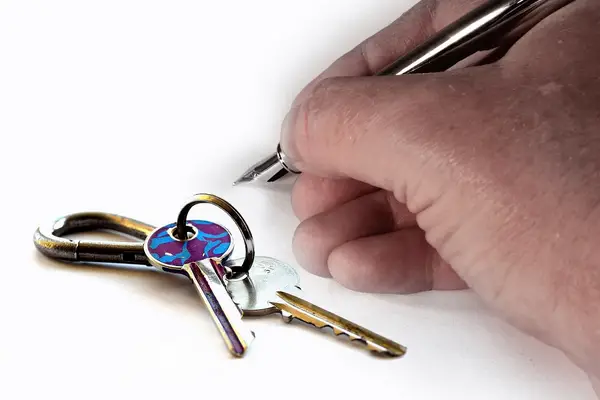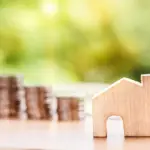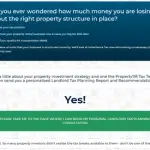
The introduction of the Section 24 Tax, which is also known as Tenant Tax, has been a real kick in the teeth to those accidental landlords. But Tenant Tax is only a part of what are the real costs of becoming an accidental landlord. The Tenant Tax change was quickly followed by an additional 3% Stamp Duty for anyone buying a second home. But another nail in the cost of being a landlord coffin is the accidental landlord Capital Gains Tax problem too.
What are the real costs of becoming an accidental landlord in brief:
The real cost of becoming an accidental landlord is the Section 24 tax (or Tenant Tax), which withdrew higher rate tax relief for interest on buy to let mortgages. Also, the extra 3% Stamp Duty on second homes won’t have helped; Plus the planned changes to Capital Gains Tax relating to Principle Property Relief (PPR).
Accidental landlords are hit hard by tax legislation on three fronts: Income Tax, Stamp Duty and Capital Gains Tax
The cost of becoming an accidental landlord is mounting up. If you’re an accidental landlord, you’ve been attacked on three tax fronts by the Conservative Government changes.
The first is the Section 24 Tenant Tax change, which means for the 2020-21 tax year you’ll only receive basic rate tax relief for mortgage interest on your rental property.
“For me, the biggest influence in recent years in my property investment journey has been Mark and everyone at Property118 including Mark Smith. The help my wife and myself have received from Property118 with referference to our tax planning, tax efficiency has been excellent. For four years since the introduction of Section 24, I’ve been researching and exploring ways for our property portfolio business to be more tax efficient and hence more profitable.
I have spoken to many so called “tax specialists” during this time in an attempt to arrange our business in a way to benefit ourselves and family moving into the future. Without doubt, the best advice and support has come from Property118 and from Mark Alexander himself who has always been generous with his time and enthusiastic to find the best way to solve landlords problems. As a result of Mark Alexander’s and Mark Smith’s help my wife and myself have managed to incorporate without the need to refinance, thus saving us thousands in the process.”
Testimonial on Prioperty118.com; read Gary’s full review here from property landlord taking advance of Section 24 tax advice.
The second hit to your pocket is the additional 3% Stamp Duty (SDLT) you have to pay on each subsequent property you buy whilst owning your investment property.
The final tax-nail in the accidental landlord coffin is the planned changes to Capital Gains Tax (CGT). This final change is to the CGT relief on your principle private residence to Capital Gains Tax when you sell your Principle Private Residence (PPR).
If you let a property that was once your PPR, any CGT relief will be lost under these new rules.
What is an accidental landlord?
The so-called accidental landlords are those property owners who didn’t buy their rental property with the intention of letting it out.
An accidental landlord is someone who ended up with a property that has since been let out. In many cases this was done either because they couldn’t sell their property it at the time they were moving. Or they decided to buy a new home whilst holding on to their first property as an investment.
In 2019 the number of accidental landlords accounted for around one in every 14 landlords. However, this number is currently falling for the first time in five years.
What are the true costs of becoming an accidental landlord?
Accidental landlord tax calculations and the Section 24 Tax problem or the Tenant Tax
I have written about Section 24 or the Tenant Tax problem in this article “How much of my mortgage interest is tax deductible? (Section 24 tenant tax)“. This article goes into detail about how this change to Income Tax rules could result in all landlords.
But not just accidental landlords, where they hold investment property in their own name, paying more tax each year.
Whereas before the introduction of the Section 24 Tax, accidental landlords were able to offset their mortgage interest against rents received, but now they only receive basic rate relief instead.
This change can either push someone into the 40% higher rate tax band. Or it will mean they pat more tax in the higher rate band.
“After a gruelling 3 year divorce I was left with 15 properties, 17 year old twins to support through University and the prospect of Section 24 on the horizon.
Testimonial on Prioperty118.com; read JB’s full review here from a property landlord taking advance of Section 24 tax advice.
I had read about Mark Alexander’s spectacular success in fighting West Brom and winning £27 million in repayments to landlords who had been overcharged. It was a truly magnificent result and benefited every landlord in the country who has a tracker mortgage.
I knew I needed help to restructure so decided to invest in a consultation with Mark. This was an excellent decision. Mark grasped my situation quickly, knew what questions to ask and is knowledgeable on the landlords ultimate trinity of property, finance and law.
My twins are now 18 and I have formed a partnership with them. I can choose how much profit to allocate to them to utilise their zero/basic rate tax band and keep myself in the basic rate tax band. In 3 years time I will be able to incorporate the partnership WITHOUT needing to refinance, WITHOUT paying SDLT and WITHOUT paying CGT. Magic!“
Accidental landlord Stamp duty or SDLT
For anyone who doesn’t sell their property before they buy another one will pay the additional 3% Stamp Duty on the the new house. This additional 3% Stamp Duty is in addition to the normal Stamp Duty due on the purchase.
This change has also affected accidental landlords too where they’ve kept hold of an their first property for investment purposes and bought buy another.
The consequence of this second tax change affecting properties in the UK means that where accidental landlords retain their previous property and let it, the new home they buy will face an extra tax charge.
For example on a home that costs £300,000, using this stamp duty calculator shows that the increase in Stamp Duty goes from £5,000 to £14,000. But if your new home is to cost £500,000 the extra stamp duty cost would be a staggering £15,000!
There is a get out clause on this Stamp Duty Tax. This is if the person sells their previously let property within three years of buying their new home and revert back to owning just one house, they can apply reclaim the Stamp Duty Surcharge.
Accidental landlord Capital Gains Tax or CGT
In the UK home owners are not subject to Capital Gains Tax when they sell their home (or their principle Private Residence or PPR). This is referred to as Principle Private Residence relief.
Whereas anyone who sells an investment property would be subject to Capital Gains Tax. But only if it were sold for more than it cost to buy. This relief is extended to those who don’t sell their principle private residence and let it out as an investment.
This was extended to help those who had to move but couldn’t sell their house at the time. The current rules mean that a part of the gain would be taxable to CGT.
For example: If you owned a property for 10 years; Let’s say you lived in it for 6 years. This means the proportion of the gain for the period of 6 years and 9 months (For 2019 this would have been 6 years and 18 months) would be CGT free. Whereas 3 years 3 months (For 2019 2 years 6 months) would be subject to CGT.
Additionally, there was ‘Lettings Relief’. This was available up until 2019. But from 2020 this will only apply to landlords who are currently living with their tenants.
Discussions of yet further changes to accidental landlord capital gains tax
There are also discussions taking place to remove the PPR relief altogether on a house you have used as your PPR and then let it out to tenants.
If this change comes into effect, it could cost accidental landlords thousands in additional tax when they come to sell their property.
This could come at difficult time, for example when there are home owners who may struggle to sell their home as a result of Coronavirus-Covid-19, but who have to move to find another job.
I hope this article has helped on what are the real costs of becoming an accidental landlord
If this article has helped on ‘what are the real costs of becoming an accidental landlord’ please share it on your favourite social media site. If you’d like to discuss your rental property or your property portfolio, please contact us.
Also, if you have any questions or you need help, please feel free to comment below too. Alternatively, if you need more help, please feel free to contact us on our contact us page here. Or join the discussion and ask your question in the property forum.




